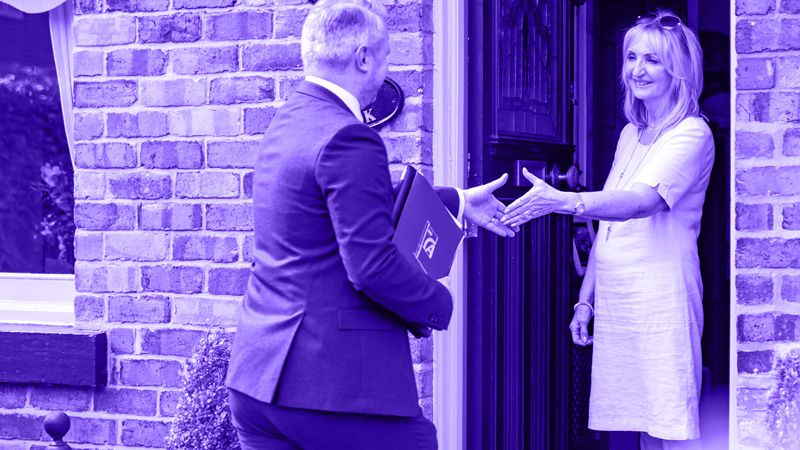When looking at mortgage products, a large focus is on the interest – the type of interest applicable, the rate and the term that the lender agrees to set the rate for.
In this post, we will cover what mortgage interest is, how it is calculated and why the rate is so important in relation to mortgages.
What is Mortgage Interest?
Mortgage interest is crucial to establish the total cost of the borrowing, and in essence, how much the balance of the loan will increase each month.
How is Mortgage Interest Calculated?
Interest rates are calculated as a percentage of the balance of the mortgage and the interest applicable can be applied daily or monthly depending on the terms of the mortgage.
There are generally two types of mortgages, that determine how the interest is applied:
- Repayment Mortgage – Where each monthly repayment includes both an element of capital repayment plus interest, resulting in the capital being repaid over time.
OR
- Interest-Only Mortgage – This option means that the capital borrowed is not repaid during the mortgage term and the monthly mortgage repayments cover the interest applicable only. With this type of mortgage, an exit strategy is required, planning how the capital balance will be repaid at the end of the term. Interest-only mortgages can keep the monthly repayments low and are suitable in certain circumstances.
The next important factor in the mortgage calculation depends on the type of mortgage selected between:
- A fixed-rate mortgage – Where the interest rate and monthly mortgage repayment remains the same amount for a set period of time, commonly between a 2- and 10-year mortgage term.
OR
- A variable-rate mortgage – A type of mortgage product where the interest rate can fluctuate, and therefore the level of repayments can also alter depending on the Bank of England base rate or the Libor rate. Often the interest rate for a variable-rate mortgage product tracks as a set percentage above the Bank of England base rate or the Libor rate.
Need more help? Check our quick help guides:
- Reasons why a mortgage could be declined on affordability.
- How reliable is a mortgage in principle?
- How do joint mortgages work?
- Can you get a mortgage on a fixed-term contract?
Why is a Mortgage Interest Rate so Important?
The mortgage interest rate will set both the amount of the monthly repayments as well as how quickly the capital mortgage value decreases, if on a repayment mortgage product. In simple terms, the higher the interest rate equates to higher monthly mortgage repayments.
What Mortgage Products have the Lowest Interest Rate?
Typically, the lowest mortgage interest rates available are on variable mortgage products and fixed-rate mortgages are more expensive to lock in the security of setting the monthly mortgage repayments.
In addition, the shorter the duration of the mortgage term will often see lower interest rates, as longer fixed periods increase the risk to the mortgage lender.
How is the APRC different to the Mortgage Interest Rate?
APRC is the annual percentage rate of change, which equates to the mortgage interest rate plus any fees and charges, which is useful when comparing mortgage offers, whereas the mortgage interest rate advertised will likely be the interest rate only.
What is Mortgage Amortization?
Amortization is the process of spreading out the monthly payments of the capital and interest due over the mortgage term, therefore over time, although the repayments stay the same, the capital is repaid at a higher percentage each month.
What is the Difference Between the Daily Interest and Annual Interest Mortgages?
It is most common for interest to be calculated and added to a mortgage balance on a monthly basis, however, in some circumstances, this is undertaken on a daily basis.
With a daily interest mortgage, every payment made to the lender can reduce the interest due promptly as the interest calculation is undertaken every day.
Therefore, if the mortgage holder was in a position to make a number of overpayments, the benefits can be felt sooner.
Related guides:
- When was my house built?
- Buying out a sibling from an inherited house
- How long does it take to release mortgage funds?
- Does a valuation mean that a mortgage is approved?
- Mortgage lenders that accept benefits
- Can I extend my interest-only mortgage term?
How do I Gain the Best Mortgage Rate?
Lenders usually advertise their best interest rates that they could offer to mortgage applicants if they meet a range of set criteria. Not all applicants would meet the criteria exactly, and therefore may be offered a less advantageous rate.
In order to obtain the best interest rate available, it is strongly advised that applicant’s take time to prepare their circumstances to be in the best position before applying.
The main factors that impact the mortgage rate offered are:
- The applicant’s credit history and current credit score – In order to obtain the best mortgage interest rate, an applicant would need to have a good credit history and a current acceptable credit score. Each lender will have different expectations with regards to a successful applicant’s financial situation, however, it is advisable to put yourself in the best position possible before making an application. There are many ways to improve your current credit score such as ensuring that you are registered on the Electoral Roll, however, if there are elements of your credit history that are less than perfect it would be recommended to seek advice before applying.
- Have a sufficient deposit and therefore good Loan to Value ratio – The larger the deposit you can provide towards the purchase of property reduces the lender’s risk and therefore, in turn, they can offer a lower interest rate on a mortgage. For example, a potential homebuyer with a 40% deposit will qualify for much-improved interest rates than someone only offering a 10% deposit.
- Explore the wider mortgage market – Competition within the mortgage market can also determine the interest rates available. It is always highly recommended that thorough research is undertaken, across the wider mortgage market before applying to a lender. Should you wish to have help, support and guidance during the research phase, to compare lender’s you can opt to use a mortgage broker.
Related guides:
- Mortgage 5 times salary.
- Can you get a mortgage on land?
- Refurbishment mortgages.
- Part and part mortgages.
- HMO mortgages.
How is mortgage Interest Calculated? Summary
In this post, we have explored the range of factors that impact the mortgage interest rate offered.
There is a range of factors that impact the interest rate offered, such as the loan to value rate and the applicant’s financial position, as well as factors that are outside of the control of a potential homeowner including the Bank of England Base Rate.
Should you be in the market for a mortgage or re-mortgage, please contact our friendly team to book a personalised consultation.
Call us today on 03330 90 60 30 or feel free to contact us. One of our advisors will be happy to talk through all of your options with you.
Further reading:













